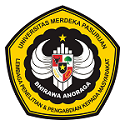Community Engagement: Meningkatkan Kesadaran tentang Dampak Positif dan Negatif Penggunaan Smartphone di Kalangan Siswa SMA NW Syaikh Zainuddin Anjani, Lombok Timur, NTB
DOI:
https://doi.org/10.51213/jmm.v7i1.149Keywords:
Keterlibatan masyarakat, penggunaan smartphone, kesadaran, kesejahteraan siswa, Lombok Timur, NTB, Community engagement, smartphone usage, awareness, student well-beingAbstract
Proyek ini fokus pada meningkatkan kesadaran siswa SMA NW Syaikh Zainuddin NW Anjani, Lombok Timur, NTB, mengenai dampak positif dan negatif penggunaan smartphone. Tujuannya adalah memberi pemahaman komprehensif kepada siswa tentang keuntungan dan kerugian dari penggunaan smartphone yang berlebihan melalui lokakarya, diskusi interaktif, dan kampanye kesadaran. Metode partisipatif melibatkan siswa, guru, orang tua, dan masyarakat lokal. Hasilnya adalah dapat meningkatkan kesadaran siswa tentang konsekuensi penggunaan smartphone yang berlebihan, dialog masyarakat tentang kebiasaan teknologi yang sehat, dan pengembangan strategi untuk mengurangi dampak negatif. Melalui upaya ini, kami dapat memberdayakan siswa untuk membuat keputusan yang lebih bertanggung jawab dalam penggunaan smartphone dan menciptakan lingkungan yang mendukung kesejahteraan mereka.References
L. S. Rahmawati, J. Maknunah, and A. Prasetyo, “Peningkatan Pengetahuan Teknologi Informasi dan Komunikasi Bagi Siswa Madrasah Aliyah Nurul Huda Ngajum Malang,” Jurnal Masyarakat Merdeka, vol. 6, no. 2, pp. 114–122, 2023, doi: http://dx.doi.org/10.51213/jmm.v6i2.142.
J. Karaman et al., “Sosialisasi dan Pendampingan Tenaga Pendidik dalam Penerapan Teknologi Absensi Berbasis Qr Code di Sekolah Dasar Desa Tugu,” JMM, vol. 6, no. 2, p. 102, Jan. 2024, doi: 10.51213/jmm.v6i2.143.
A. Aliyadi, E. Kumalasari, W. T. Putra, and J. Karaman, “Pelaksanaan Ujian Jabatan Perangkat Desa Ngentep Dengan Menggunakan Sistem Ujian CAT,” JMM, vol. 6, no. 2, p. 154, Jan. 2024, doi: 10.51213/jmm.v6i2.146.
M. Obeso, M. Pérez-Pérez, G. García-Piqueres, and A.-M. Serrano-Bedia, “Enhancing students’ learning outcomes through smartphones: A case study of using instagram in higher management education,” The International Journal of Management Education, vol. 21, no. 3, p. 100885, Nov. 2023, doi: 10.1016/j.ijme.2023.100885.
A. Sarman and N. Çiftci, “Relationship between smartphone addiction, loneliness, and depression in adolescents: A correlational structural equation modeling study,” Journal of Pediatric Nursing, vol. 76, pp. 150–159, May 2024, doi: 10.1016/j.pedn.2024.02.019.
B. Zhou, L. G. Mui, J. Li, Y. Yang, and J. Hu, “A model for risk factors harms and of smartphone addiction among nursing students: A scoping review,” Nurse Education in Practice, vol. 75, p. 103874, Feb. 2024, doi: 10.1016/j.nepr.2024.103874.
Y. Ko and S. Park, “Analyzing the Caregivers’ behavioral patterns in managing their young Children’s smartphone use in South Korea,” Journal of Pediatric Nursing, vol. 72, pp. 84–91, Sep. 2023, doi: 10.1016/j.pedn.2023.05.008.
K. Kim, Y. Yoon, and S. Shin, “Explainable prediction of problematic smartphone use among South Korea’s children and adolescents using a Machine learning approach,” International Journal of Medical Informatics, vol. 186, p. 105441, Jun. 2024, doi: 10.1016/j.ijmedinf.2024.105441.
Z. Zhou, H. Liu, D. Zhang, H. Wei, M. Zhang, and A. Huang, “Mediating effects of academic self-efficacy and smartphone addiction on the relationship between professional attitude and academic burnout in nursing students: A cross-sectional study,” Nurse Education Today, vol. 116, p. 105471, Sep. 2022, doi: 10.1016/j.nedt.2022.105471.
W. ElDessouki and A. AlManeea, “Smartphones and traffic signals: A quantitative assessment for phone usage behavior on performance of signalized intersections,” Journal of Traffic and Transportation Engineering (English Edition), vol. 10, no. 4, pp. 611–632, Aug. 2023, doi: 10.1016/j.jtte.2022.06.005.
H. Bai, J. Liu, W. Bai, and T. Cao, “Social pressures and their impact on smartphone use stickiness and use habit among adolescents,” Heliyon, vol. 10, no. 7, p. e29111, Apr. 2024, doi: 10.1016/j.heliyon.2024.e29111.
L. M. Ramjan et al., “The negative impact of smartphone usage on nursing students: An integrative literature review,” Nurse Education Today, vol. 102, p. 104909, Jul. 2021, doi: 10.1016/j.nedt.2021.104909.
L.-C. Wickord and C. Quaiser-Pohl, “Suffering from problematic smartphone use? Why not use grayscale setting as an intervention! – An experimental study,” Computers in Human Behavior Reports, vol. 10, p. 100294, May 2023, doi: 10.1016/j.chbr.2023.100294.
M. Karloh et al., “Breaking barriers to rehabilitation: the role of behavior change theories in overcoming the challenge of exercise-related behavior change,” Brazilian Journal of Physical Therapy, vol. 27, no. 6, p. 100574, Nov. 2023, doi: 10.1016/j.bjpt.2023.100574.
F. Vande Velde, H. J. Overgaard, and S. Bastien, “An integrated human behavioral model for mosquito-borne disease control: A scoping review of behavior change theories used to identify key behavioral determinants,” Heliyon, vol. 10, no. 4, p. e26488, Feb. 2024, doi: 10.1016/j.heliyon.2024.e26488.
P. Dague, L. Muller, L. Paulevé, and M. Irigoin-Guichandut, “Towards a qualitative theory of the interruption of eating behavior change,” Journal of Theoretical Biology, vol. 581, p. 111731, Mar. 2024, doi: 10.1016/j.jtbi.2024.111731.
K.-W. Lee and Y.-F. Tseng, “Driving the dual learning process of management knowledge: A social cognitive theory perspective,” The International Journal of Management Education, vol. 22, no. 1, p. 100940, Mar. 2024, doi: 10.1016/j.ijme.2024.100940.
S. Badghish, A. S. Shaik, N. Sahore, S. Srivastava, and A. Masood, “Can transactional use of AI-controlled voice assistants for service delivery pickup pace in the near future? A social learning theory (SLT) perspective,” Technological Forecasting and Social Change, vol. 198, p. 122972, Jan. 2024, doi: 10.1016/j.techfore.2023.122972.
E. Dutemple, H. Hakimi, and D. Poulin-Dubois, “Do I know what they know? Linking metacognition, theory of mind, and selective social learning,” Journal of Experimental Child Psychology, vol. 227, p. 105572, Mar. 2023, doi: 10.1016/j.jecp.2022.105572.
C. L. Ryan, R. Cant, M. M. McAllister, R. Vanderburg, and C. Batty, “Transformative learning theory applications in health professional and nursing education: An umbrella review,” Nurse Education Today, vol. 119, p. 105604, Dec. 2022, doi: 10.1016/j.nedt.2022.105604.
J. Rojo et al., “Applying Mezirow’s Transformative Learning Theory into nursing and health professional education programs: A scoping review,” Teaching and Learning in Nursing, vol. 18, no. 1, pp. 63–71, Jan. 2023, doi: 10.1016/j.teln.2022.09.013.
P. Grech and R. Grech, “The role of health promotion theories in Stroke Awareness and Education,” Applied Nursing Research, vol. 58, p. 151415, Apr. 2021, doi: 10.1016/j.apnr.2021.151415.
Downloads
Published
How to Cite
Issue
Section
License
![]()
Jurnal Masyarakat Merdeka (JMM) articles are published under license Attribution-ShareAlike 4.0 International (CC BY-SA 4.0) .





